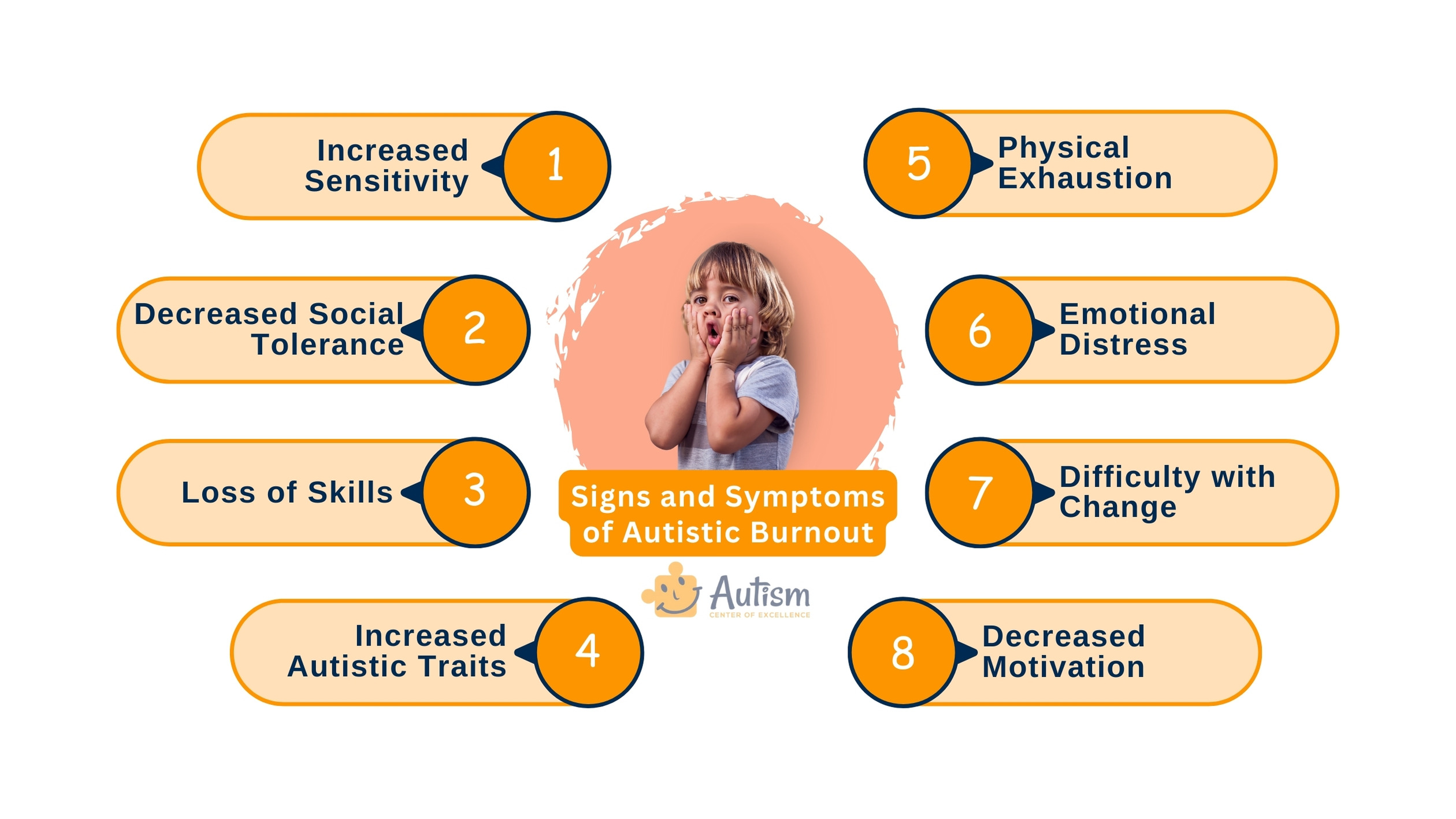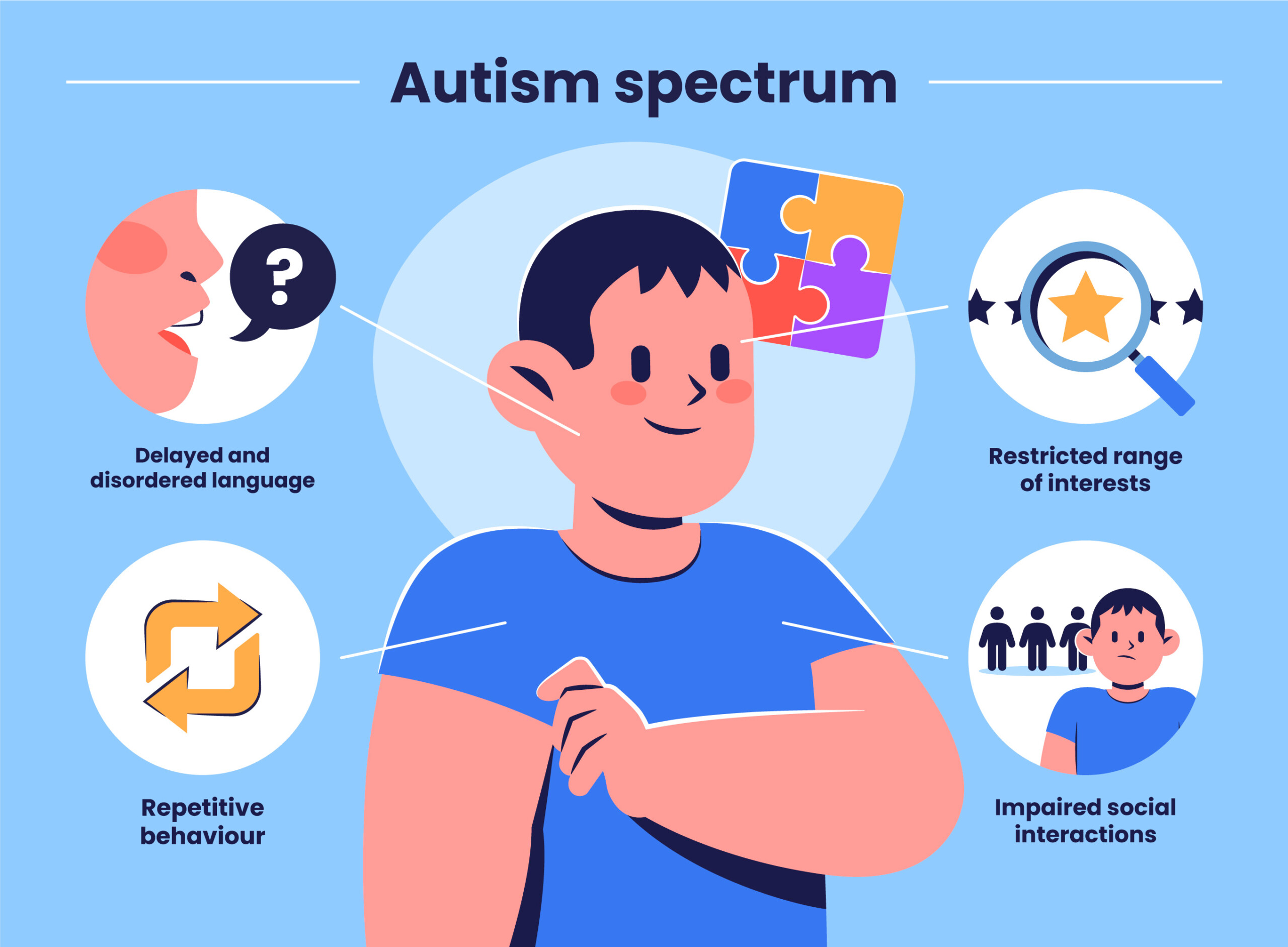Exceptional talents often seen by an experienced Autism Therapist
Exceptional talents often seen by an experienced Autism Therapist
Blog Article
Trick Indicators and Signs And Symptoms to Recognize in Individuals With Behavioral Autism
When you encounter a person with behavioral autism, acknowledging key indicators and signs is vital. You may see difficulties in social communications and interaction, in addition to a strong need for routines. Additionally, sensory sensitivities can bring about frustrating experiences. Understanding these characteristics can enhance your support and treatments, however there's even more to uncover concerning how these habits materialize in day-to-day circumstances. Let's explore what these signs really look like.
Obstacles in Social Interactions
When you communicate with somebody on the autism range, you could discover they fight with social signs and interaction. These difficulties can make social communications feel frustrating for them. You may see them preventing eye get in touch with or standing also close or as well far during conversations, which can develop misconceptions. They might not notice body language or facial expressions, making it harder for them to assess exactly how others are really feeling.
When they do involve, they may chat about their passions in fantastic detail without noticing if you're interested. Comprehending these obstacles can help you come close to interactions with compassion and persistence, promoting an extra comfy environment for both of you.
Trouble With Verbal and Non-Verbal Interaction

Recognizing these indicators is vital, as it aids you much better support and engage with individuals on the autism range. By recognizing their interaction difficulties, you can promote more purposeful connections and provide an extra helpful atmosphere.
Repetitive Actions and Routines
Interaction challenges typically go along with other indications of autism, such as repeated behaviors and a solid preference for regimens. You could see that people with autism commonly take part in details, repeated actions, like hand-flapping, shaking, or repeating phrases. These behaviors can give convenience and a feeling of control in an often overwhelming world.
When they adhere to a structured routine,Routines are similarly crucial; several individuals prosper. You may discover that changes to these routines can cause considerable distress. For instance, if they have a day-to-day routine of consuming morning meal at a specific time or complying with a particular route to school, any interruption can trigger anxiety.
Recognizing these patterns helps you recognize their habits and give assistance. By accommodating their need for routine and enabling recurring actions, you can create an extra comfortable atmosphere that eases their challenges.
Sensory Sensitivities

Typical Sensory Triggers
Sensory level of sensitivities can substantially influence life for people with autism, as particular stimulations usually cause frustrating reactions. Usual sensory triggers include loud sounds, bright lights, and strong scents. You might notice that sudden noises, like alarms or alarms, cause anxiety or distress. Similarly, fluorescent illumination in shops can really feel uncomfortable and harsh. Textures can also play a significant function; harsh textiles or particular food textures might be unbearable for you. Additionally, crowded locations can bewilder your detects, making it tough to focus or unwind. Recognizing these triggers can help you manage your setting much better. By being mindful of what impacts you, you can take steps to decrease discomfort and boost your everyday experiences.
Behavior Actions Clarified
Comprehending your behavioral actions to sensory sensitivities is essential, as they often expose just how you connect with the world. You could discover that particular noises, lights, or textures overwhelm you, causing anxiety or pain. When confronted with these stimuli, you might take out, cover your ears, or even respond boldy. These reactions aren't just traits; they're your means of dealing with overstimulation. You may additionally find yourself seeking particular sensory experiences, like deep pressure or silent atmospheres, to aid ground yourself. Identifying these patterns assists you recognize your needs better and can assist just how you communicate them to others. By recognizing your sensory level of sensitivities, you can function in the direction of developing a setting that really feels much more workable and comfy for you.
Coping Strategies Review
Recognizing your sensory sensitivities is simply the initial step; currently it's time to discover coping strategies that can aid you take care of those experiences efficiently. Beginning by developing a sensory toolkit tailored to your requirements. This could consist of noise-canceling headphones, fidget toys, or soothing scents. Developing a structured regimen can also give predictability, lowering anxiousness around sensory overload. Take breaks in a peaceful room to collect yourself when you feel overloaded. Practicing mindfulness strategies like deep breathing can help ground you in the minute. Additionally, connect your needs with those around you; having encouraging family and friends can make a significant difference. Bear in mind, locating what works best for you may require time, so be open and patient to trying new approaches.
Restricted Passions and Focus
While numerous individuals create a vast variety of rate of interests, those with autism usually demonstrate limited rate of interests and an extreme concentrate on particular topics. You may see that someone with autism can spend hours delving into their favored subject, whether it's a certain type of train, a particular flick, or a scientific concept. This extreme emphasis isn't just a hobby; it can come to be a main part of their identification and social interactions.
You might discover that conversations rotate around these interests, and they may have a hard time to engage in broader subjects. For them, these concentrated rate of interests offer convenience and a feeling of mastery. While it is necessary to urge expedition of brand-new go to my blog subjects, respecting their passions is equally necessary. By understanding and recognizing these restricted passions, you can promote an encouraging atmosphere where they feel valued and understood, enabling even more meaningful connections and interactions.
Emotional Law Troubles
Individuals with autism typically encounter challenges in emotional law, which can be influenced by their intense concentrate on certain interests. You may see that when an individual is deeply taken part in a recommended activity, they can experience solid feelings, whether enjoyment or aggravation. This intensity sometimes makes it difficult for them to move equipments or handle their sensations when things don't go as planned.

Variability in Developing Landmarks
When it comes to developmental landmarks, you'll discover that people with autism often show a large range of variability. You could see a kid succeed in language skills however battle with social communications.
It's crucial to acknowledge that each person's journey is unique. Some might develop complex abilities early, only to encounter difficulties in the future. Others may take longer to attain standard milestones however after that grow in details areas. Observing these patterns can help you comprehend their toughness and requires better.
Often Asked Inquiries
How Is Autism Detected in Children and Grownups?
To detect autism in grownups and children, specialists evaluate behavior, interaction skills, and social communications. If a specific satisfies the requirements for autism spectrum problem., they frequently make use of standard examinations, meetings, and monitorings to identify.
Exist Various Sorts Of Autism Range Disorders?
Yes, there are different types of autism spectrum conditions, including Asperger's disorder and prevalent developing disorder-not otherwise defined. Each kind varies in intensity and qualities, so understanding these differences can aid you far better support individuals with autism.
What Therapies Work for People With Autism?
When taking into consideration reliable therapies for people with autism, you'll discover choices like Applied Habits Analysis, speech treatment, and work-related treatment. Each strategy can assist improve interaction, social abilities, right here and day-to-day functioning tailored to specific requirements.
Can Individuals With Autism Lead Independent Lives?
Yes, people with autism can lead independent lives. With the right assistance, skills training, and sources, you can help them create self-sufficiency, manage everyday jobs, and thrive in various atmospheres, promoting their independence.
Just How Can Family Members Support Loved Ones With Autism?
You can sustain your enjoyed ones with autism by developing a structured environment, encouraging their rate of interests, exercising perseverance, fostering interaction, and promoting social skills. Commemorate their achievements, despite exactly how tiny, and build an encouraging neighborhood.
Although numerous individuals on the autism range can utilize and comprehend language, they often encounter significant challenges with both non-verbal and verbal interaction. Recognizing these signs is important, as it helps you much better assistance and involve with individuals on the autism range. You could see that people with autism usually engage in certain, repetitive actions, like hand-flapping, rocking, or repeating phrases.Sensory sensitivities can significantly impact day-to-day life for individuals with autism, as particular stimulations usually activate overwhelming reactions.When it comes to developmental milestones, you'll observe you can look here that individuals with autism commonly show a wide variety of irregularity.
Report this page